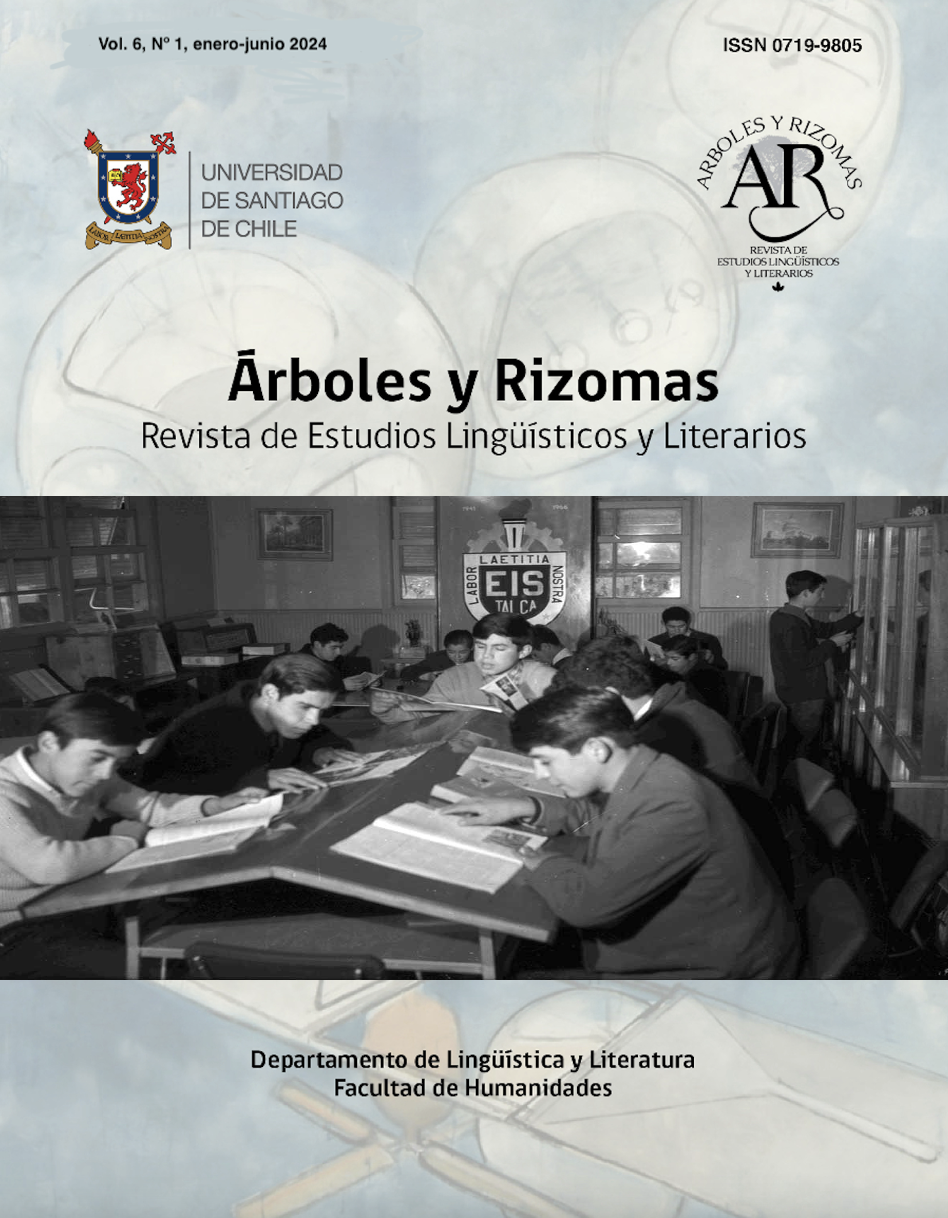Open knowledge and critical academic literacy
DOI:
https://doi.org/10.35588/nq1b1993Keywords:
knowledge systems, critical academic literacy, open scienceAbstract
The editor shares some reflections on the role of academic journals in the context of the Open Science project, comments on their implications for the processes of reading scientific texts and proposes that critical academic literacy should be part of open knowledge projects. He then presents the contents of the current issue.
Downloads
References
Anderson, K. (May 16, 2024). Wiley Closes a Crop of Journals. The Geyser. https://www.the-geyser.com/wiley-closes-a-crop-of-journals/
Bacquet, G. (2021). Towards a decolonization of classroom practices in Chilean higher education - A suggested framework. International Journal of Education and Literacy Studies, 9(4), 16-25.https://journals.aiac.org.au/index.php/IJELS/article/view/6937
Canagarajah, S. (2010). Internationalizing knowledge construction and dissemination. The Modern Language Journal, 94(4), 661-664. https://doi.org/10.1111/j.1540-4781.2010.01105.x
Farías, M. & Araya, C. (2014). Alfabetización visual crítica y educación en lengua materna: estrategias metacognitivas en la comprensión lectora de textos multimodales. Colombian Applied Linguistics Journal,16(1), 93-104.http://dx.doi.org/10.14483/udistrital.jour.calj.2014.1.a08
Farías, M. & Abraham, P. (2017). Reading with Eyes Wide Open: Reflections on the Impact of Multimodal Texts on Second Language Reading. Íkala, Revista de Lenguaje y Cultura, 22(1), 57-70.https://doi.org/10.17533/udea.ikala.v22n01a04
Farías, M. (2017). Evaluación de una intervención pedagógica en alfabetización visual para la comprensión lectora de textos multimodales en programas de formación inicial docente en Lenguaje y Comunicación. Literatura y Lingüística, 35, 405-420.http://dx.doi.org/10.4067/S0716-58112017000100403
Farías, M. (2018). Algunos desafíos y oportunidades de las revistas especializadas en humanidades en Latinoamérica: redes y trampas. Colombian. Appied Linguistics Journal, 20(2), 161-168. doi.org/10.14483/22487085.13714
Halliday, M.A.K. & Martin, J.R. (1993). Writing science: Literacy and discursive power. University of Pittsburgh Press.
Liubertė, I. (2019). On Social Knowledge and Its Empirical Investigation in Contemporary Organisations. Management of Organizations: Systematic Research,81(1) 21-37. https://doi.org/10.1515/mosr-2019-0002
Martin, J. R (1999). Mentoring semogenesis: 'genre-based' literacy pedagogy. In Christie, F. (Ed.), Pedagogy and the shaping of consciousness: linguistic and social processes. Continuum.
Martin, J. R & Rose, D. (2003). Working with discourse. Meaning beyond the clause. Continuum.
McCarty, T. (2005). Language, literacy, and power in schooling. Routledge
Sabaj, O. (2021, 10 noviembre). Algunos dilemas del proceso de revisión por pares en la edición de revistas científicas: la figura del evaluador [Plenaria]. Simposio Árboles y Rizomas: Oportunidades y Desafíos, Universidad de Santiago de Chile.https://www.youtube.com/watch?v=GdK5ILUjjEs
UNESCO. (2021). Recomendación sobre la Ciencia Abierta. https://www.unesco.org/es/legal-affairs/recommendation-open-science
van Dijk, T. (2019). Algunas observaciones sobre el papel del conocimiento en el procesamiento del discurso. Árboles y Rizomas, 1(1), 10-23. https://doi.org/10.35588/ayr.v1i1.3632
Wenzel, T. (2023, 23 de febrero) Más ciencia abierta para Chile. La Tercera.https://www.latercera.com/opinion/noticia/columna-de-tobias-wenzel-mas-ciencia-abierta-para-chile/VUZDLQ274FHKPIEPGPJSLLSJDQ/
Downloads
Submitted
2024-06-11Published
Issue
Section
License
Copyright (c) 2024 Miguel Farias

This work is licensed under a Creative Commons Attribution 4.0 International License.






